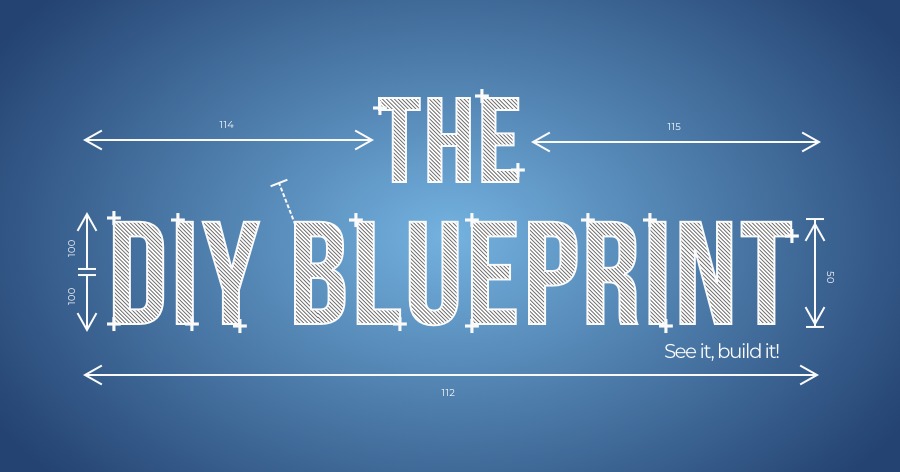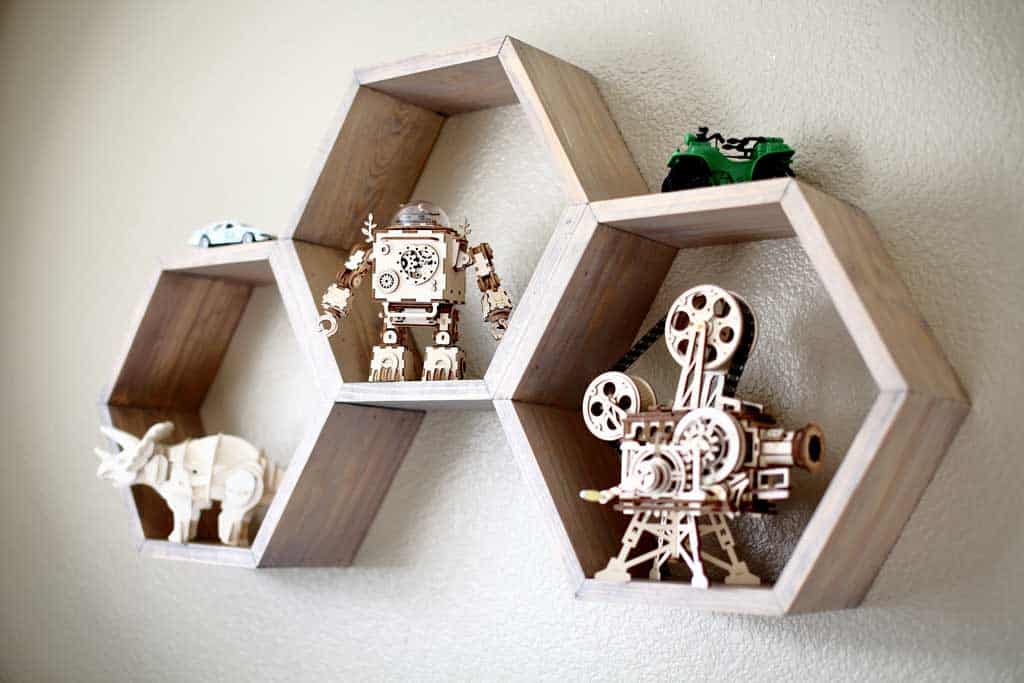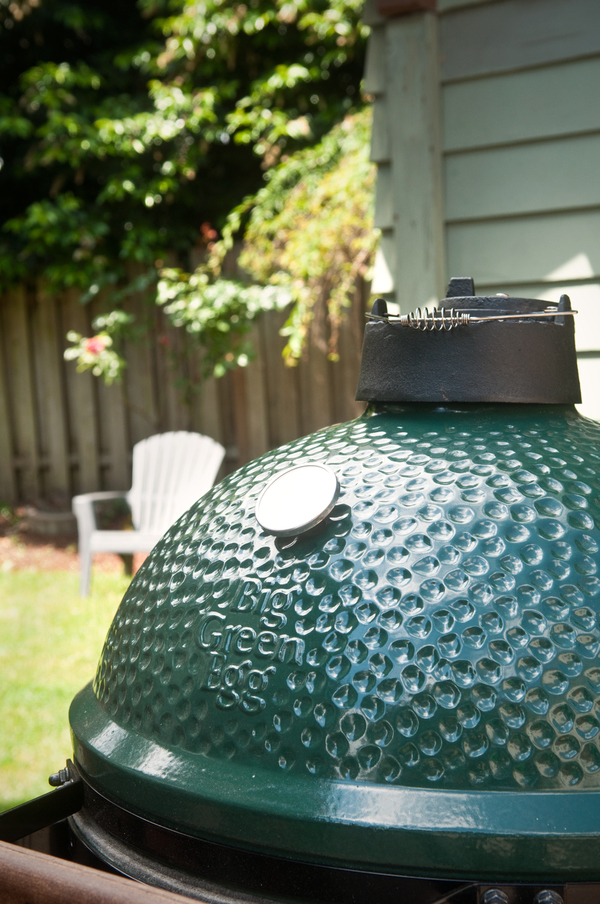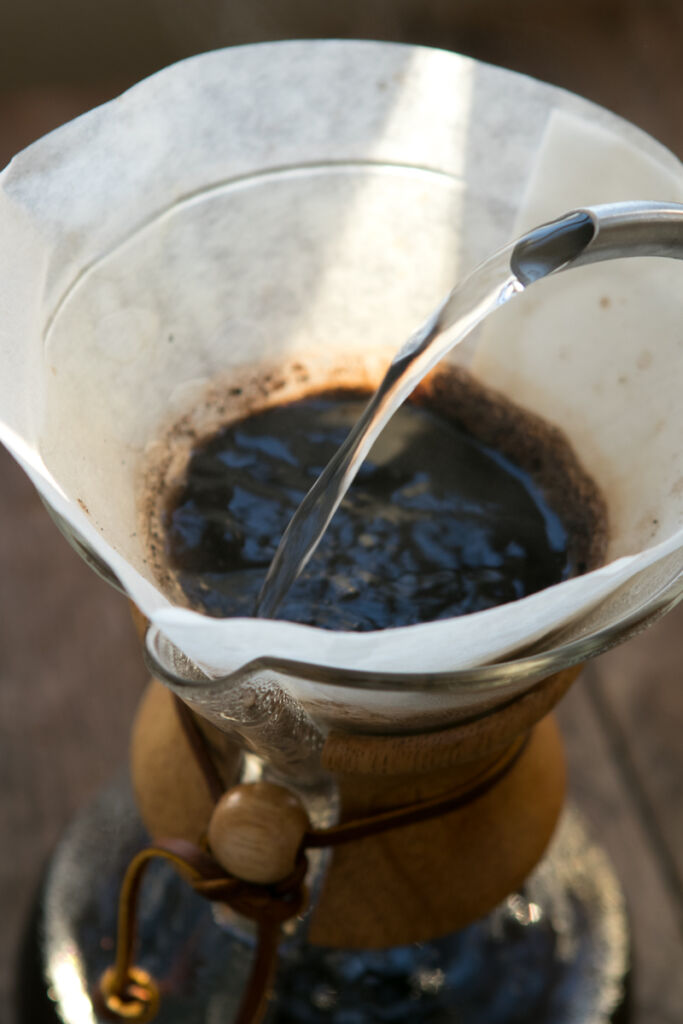First, it’s important to have the right tools. You’ll need containers to store your prepped food in. You’ll need a good set of knives, a cutting board, and measuring cups and spoons.
Considering your containers might be one of the most important decisions when it comes to food prep. Choosing the right container is just as important as the ingredients and tools you use. There are a variety of containers available, each with its own benefits and limitations.
Glass
Glass containers are a popular option due to their durability and ability to withstand high temperatures, making them ideal for oven use (and they come in affordable multipacks!). They are also non-toxic, dishwasher safe, and do not retain odors or stains. The downside is they’re heavier than typical Tupperware, and there is a higher risk of breaking them due to their material.
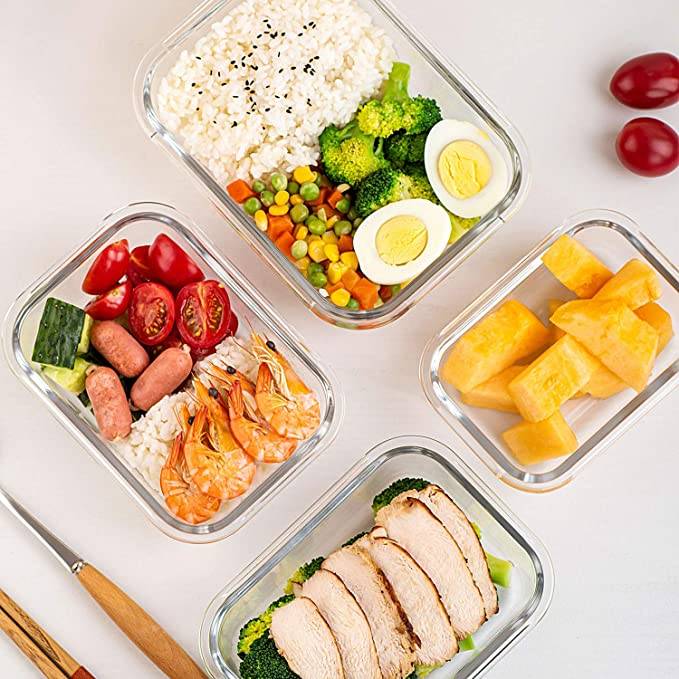
Plastic
Plastic containers are lightweight and come in a variety of shapes and sizes, making them convenient for storing and transporting food. They are also relatively inexpensive and easy to replace. However, some plastic containers may contain harmful chemicals that can leach into the food, especially when exposed to heat or acidic foods. To avoid some of those concerns, be sure that you aren’t reheating food in the same Tupperware it was stored in. This will reduce the risk of harmful chemicals leaching in.
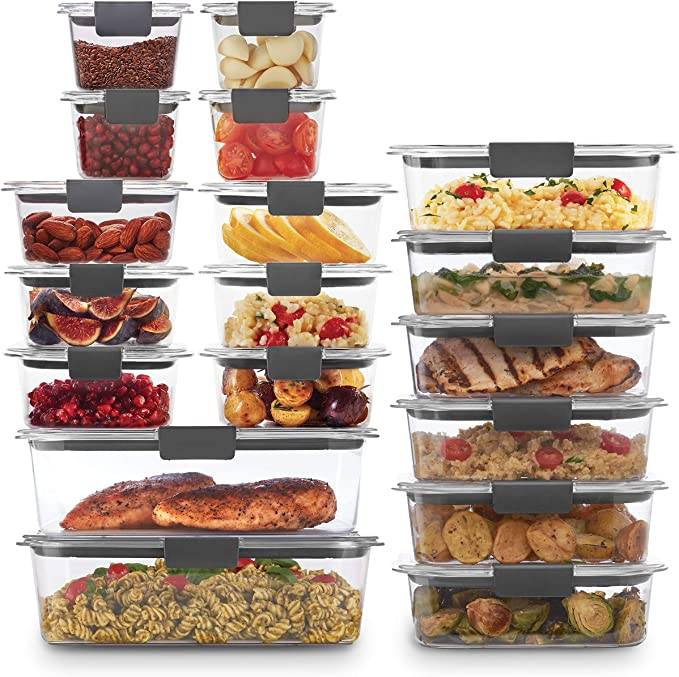
Stainless Steel
Stainless steel containers are durable, non-toxic, and easy to clean. They are also able to keep food hot or cold for extended periods of time. However, they can be more expensive than other types of containers and may not be suitable for oven use.
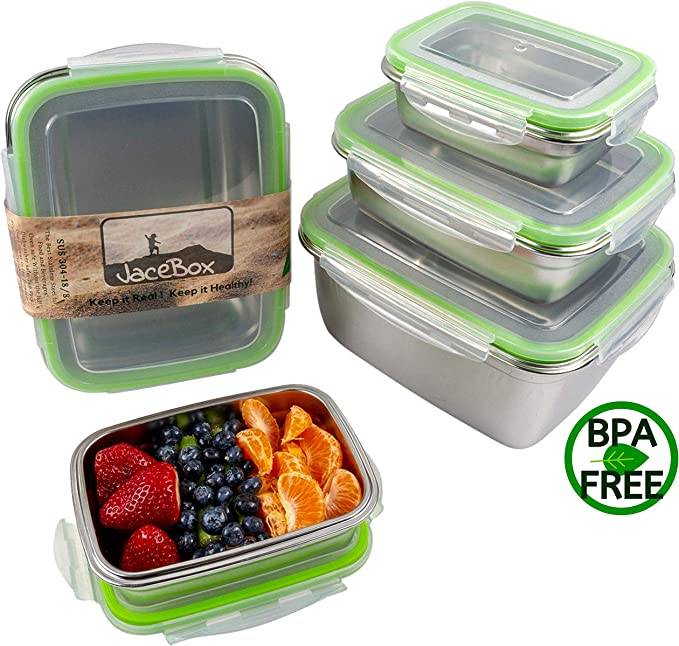
Silicone
Silicone containers are flexible and easy to store, making them ideal for small kitchens. They are also non-toxic, dishwasher safe, and can withstand high temperatures. However, they may not be as durable as other types of containers and may retain odors or stains.
When choosing a container for food preparation, it is important to consider the type of food being stored and any potential health risks associated with certain materials. It is also important to properly clean and maintain containers to prevent the growth of harmful bacteria. Ultimately, the choice of container will depend on personal preference, convenience, and budget.
